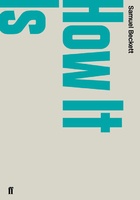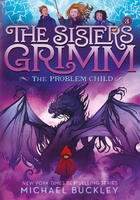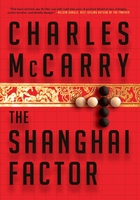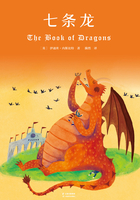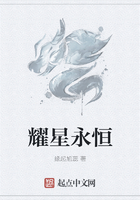Up in their hiding place, Miles and Niles set down their baby rattles and laughed. They rested their heads against rocks and laughed the laughs of pranksters, pure-souled laughter that started deep in their bellies and floated high over the breeze. They wiped tears from their eyes, then laughed so hard they cried some more. They were weak from laughing.
Pre-prank, Miles and Niles had outlined a thorough post-prank procedure. It was a two-step plan:
1. Laugh.
2. Run away.
Having completed step 1, Miles and Niles should have already been fleeing. But they turned back toward the grove.
"The squirrel," said Miles. "We gotta save it."
"I know," said Niles.
And they slid down the hillside and crept through the trees. The cries of Papa Company could still be heard in the woods. When the two boys arrived in the clearing, Niles picked up the can of fruit cocktail and admired their handiwork.
Earlier that day, pre-prank, just after dawn, they had scavenged for the perfect sticks—sturdy, straight, and forked at the end—and gone to a pond deep in the woods, where they'd spent the morning looking for snake dens. Miles caught two snakes, Niles one. They carried their quarry in a pillowcase, which writhed as if alive, and stole into the grove, which they'd been watching for weeks. Miles held the pillowcase while Niles had gone to the hollow where Papa Company stored their snacks. He'd opened the can of fruit cocktail from the bottom (with a real can opener, from his kitchen). They'd dumped out the fruit and put in the snakes, and some grass, and some rocks to get the weight right. Niles had poked airholes in the bottom of the can and reattached it, discreetly, with duct tape. (It is a fact of life that nobody looks at the bottom of a can.) At the last second, Miles had added some stinkbugs, as a masterstroke.
Now, back in the clearing, post-prank, Niles sniffed the can and shook his head.
Miles approached and peered over Niles's shoulder. "What happened to the stinkbugs?" he asked.
"I think the snakes ate them," said Niles.
"Dang."
Niles shrugged. "Nature."
Niles put the can in his pack—it would make a good exhibit in the museum Niles was planning, dedicated to their pranking exploits—and the boys cautiously approached the cage.
The squirrel saw them coming and went wild. The cage, which had toppled onto its side, rocked on the forest floor as the animal clattered inside it. The squirrel reared up on its back feet and glared at the boys, chattering.
The boys looked at each other, then back at the squirrel.
Rock paper scissors. They pounded their fists in their palms. Niles shot paper. Miles shot scissors. Niles slapped his flat palm against his forehead. Miles looked relieved.
OK.
Niles inhaled. He slowly reached toward the cage's door.
The squirrel lunged. Niles jumped back.
"Hey," said Niles. "You better do it."
"What?" said Miles. "You lost!"
"Yeah, but you have better reflexes."
Miles considered this. He smiled. Niles had a point. He rolled the sleeves of his T-shirt up to his shoulders.
"Well," said Miles, "if I get rabies, tell my mother I love her."
"If you get rabies, I think you just have to get a bunch of shots. Like twenty. In your stomach."
"Oh," said Miles. "Great."
"Anyway it takes a couple weeks to die of rabies, so you could just tell her yourself."
"Do you want me to do this or not?"
"Sorry."
Miles extended a trembling hand. The squirrel leapt at it, then bounced back from the bars of its cage. Miles flinched, but pressed on. The squirrel was furious and frightened. It leapt and nipped at the air. With an outstretched finger, Miles flicked the latch on the cage and flung the door open.
"HA HA!" Miles said (he actually said "HA HA!") as he rolled away from the cage.
"He's not leaving," said Niles, who had removed himself to a safe spot across the grove, behind a rock.
Niles was right. The squirrel stayed in its cage, staring curiously at the open door.
"Come on, little guy," said Miles. But the squirrel didn't move.
"Hmm," said Miles. "Well, take your time, but we gotta go."
"Hold on," said Niles, popping up from behind his rock.
"What are you doing?" Miles asked.
Niles ran over to the oak, scrambled up into its branches, and inched out onto the bough that held Papa Company's flag.
"Oh," said Miles. "Oh boy." He tried to exchange a conspiratorial glance with the squirrel, which was still in its cage and now appeared to be asleep.
Sitting up on the bough, Niles plucked up the flag and placed it in his lap, where he folded it into a triangle. "Catch!"
Niles tossed the flag to Miles, who tossed it in his pack. They grinned at each other. Niles wrapped his legs around the branch and hung from it upside down. He reached two fingers down, and Miles reached two fingers up, and they exchanged their secret handshake.
"Masterstroke," said Miles.
CLANG!
Over in its cage, the squirrel shrieked and sprung through the door. The boys snapped their heads toward the sound and watched the animal flee into the woods, which is why they didn't see what scared it off.
Realizing he'd get yelled at, and have to do extra push-ups, if he returned to camp bare-chested, Splinters had come back for his shirt. The cadet now stood on the edge of the clearing, watching Miles and Niles.
"UM THERE ARE TWO GUYS STEALING OUR FLAG AND THEY'RE DRESSED LIKE GIANT PLANTS!" he shouted.
Then Splinters raised his hands to his mouth and made a series of unpleasant screeches, growls, and hisses. This was the call of the turkey vulture, which was a signal to his squad that their base was under attack.
His call was answered by more screeches, growls, and hisses, and one call of "STOP THOSE NIMBUSES!" The members of Papa Company stormed back through the woods to defend their headquarters.
Niles dropped from the branch and hit the ground hard. Splinters jumped into the clearing and pinned Niles to the ground. Niles struggled, but Splinters pushed his face into the dirt.
"Mrmf," said Niles.
Then Miles charged into Splinters and tore him off his friend.
"Come on!" cried Miles, and bolted toward the woods.
Niles picked himself up and ran after Miles, who was running after the squirrel.
Josh and Mudflap arrived at the grove and saw Splinters on the ground. Josh was embarrassed for the boy, who was definitely now his least favorite cadet. He picked Splinters's shirt off the ground and held it out to him.
"Wait," Josh said. "This is my shirt."
"What?" Splinters asked.
"It says my name on it. All my stuff has my name on it."
Josh pointed to where FUTURE PRINCIPAL JOSH BARKIN was written on the inside collar in big block letters.
"YOU STOLE MY SHIRT!"
"It was a mix-up!"
It had not been a mix-up. Splinters had been wearing Josh Barkin's shirt because he wanted to be like Josh Barkin. Heck, he wanted to be Josh Barkin. And if he'd told Josh that, Josh would have been flattered. But instead, Splinters, lying shirtless on the ground, said, "You know how things get mixed up in the barracks!"
"Of course I know," said Josh. "That's why my dad wrote my name on all my stuff, nimbus!"
To be honest, Josh wished his dad hadn't written FUTURE PRINCIPAL JOSH BARKIN on all of his clothes. He'd been having second thoughts about his future. In fact, Josh had decided that he didn't want to be a principal like his father. He wanted to be a principal like his grandfather. And so he wished his grandfather had written FUTURE PRINCIPAL JOSH BARKIN on all of his clothes.
"Sir?" said Splinters, who was wondering why Josh was gazing forlornly at the stump. Josh shook his head.
Splinters looked down.
"A hundred push-ups when we get back to camp. Plus however many push-ups the supreme commander gives you for showing up out of uniform."
Splinters sniffed. "Yes, sir."
"Which way did they go?" Josh asked.
Splinters pointed.
"Follow me, nimbuses!" Josh cried out. "Let's get those nimbuses!"
He crashed into the forest, waving the shirt above his head.
Mudflap considered helping his brother up, but he turned and followed Josh instead.

